Before I embarked on my four month trip to Burgos, I knew almost nothing about Northern Spain, and even less about Burgos. Anytime a friend would ask where I was going, I would always preface it with a “you’ve never heard of it.” I had spent the prior summer in Cadiz, a city in the South of Spain, performing research with a different UTC Program. Anytime I would ask a Spaniard about Burgos, they would say that it was cold and rainy. While I would soon find out that it was vastly different from the Spain I (and most other people) know, I would recognize that it was just the right place for me.
Before I had arrived at Burgos, my Spanish was almost unintelligible. Holding a conversation was nothing more than a far-fetched aspiration. I knew that Burgos was around the size of Chattanooga, that I would be staying with a 79-year-old woman for the duration of my time there, but not much beyond that.
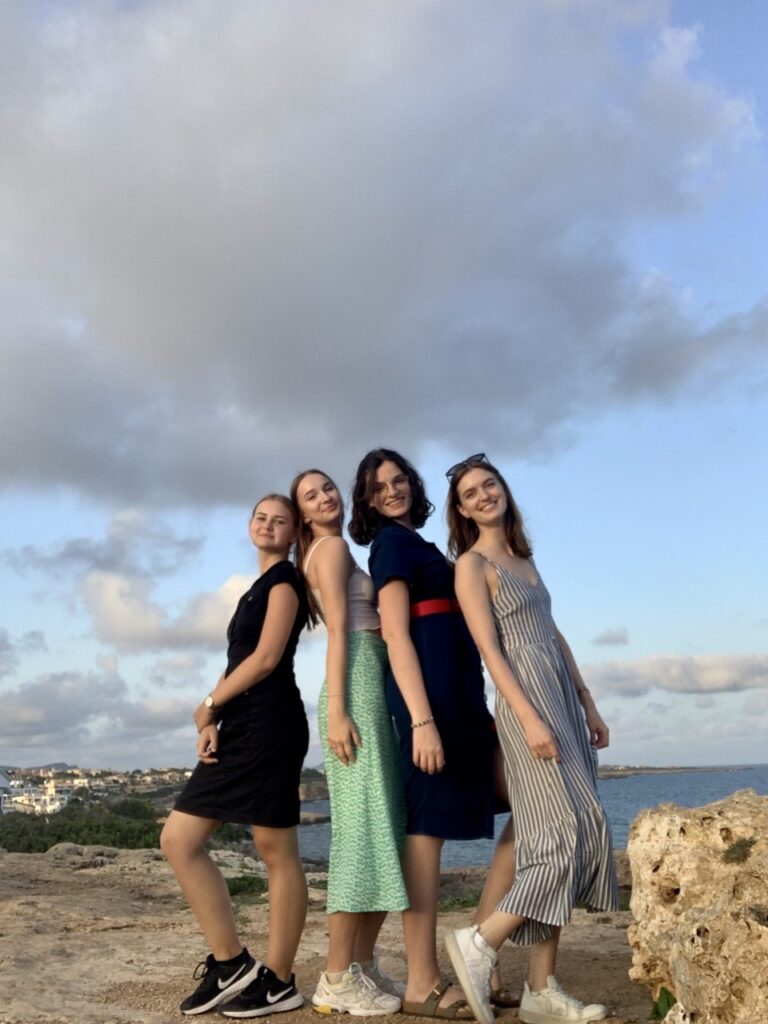
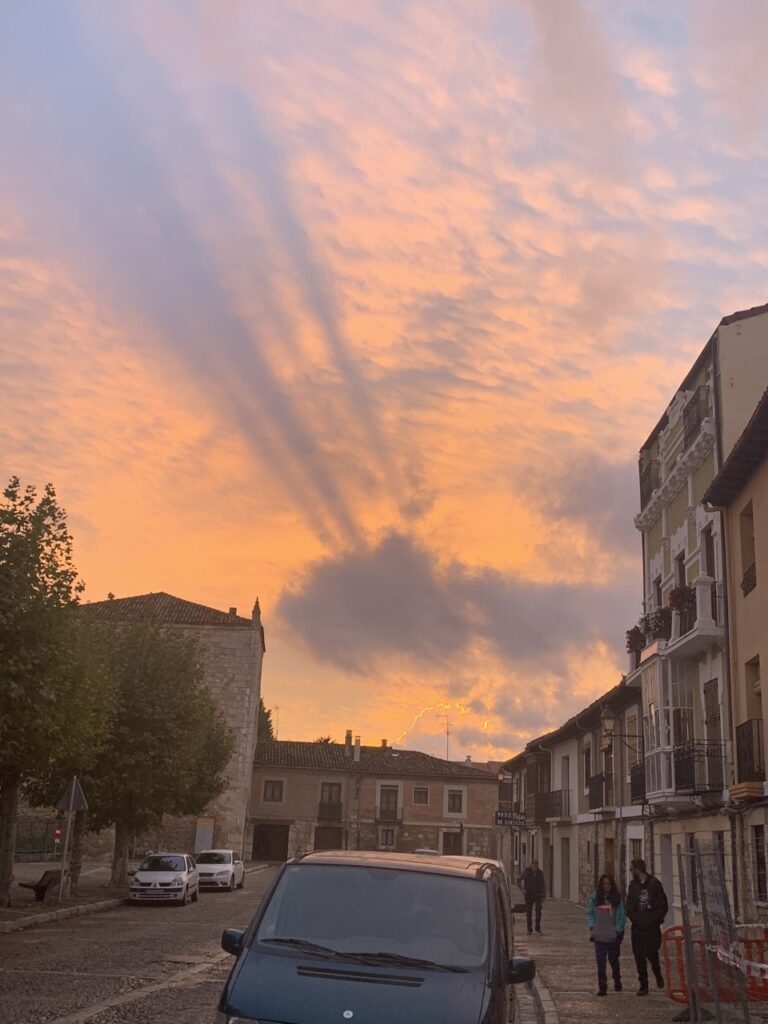
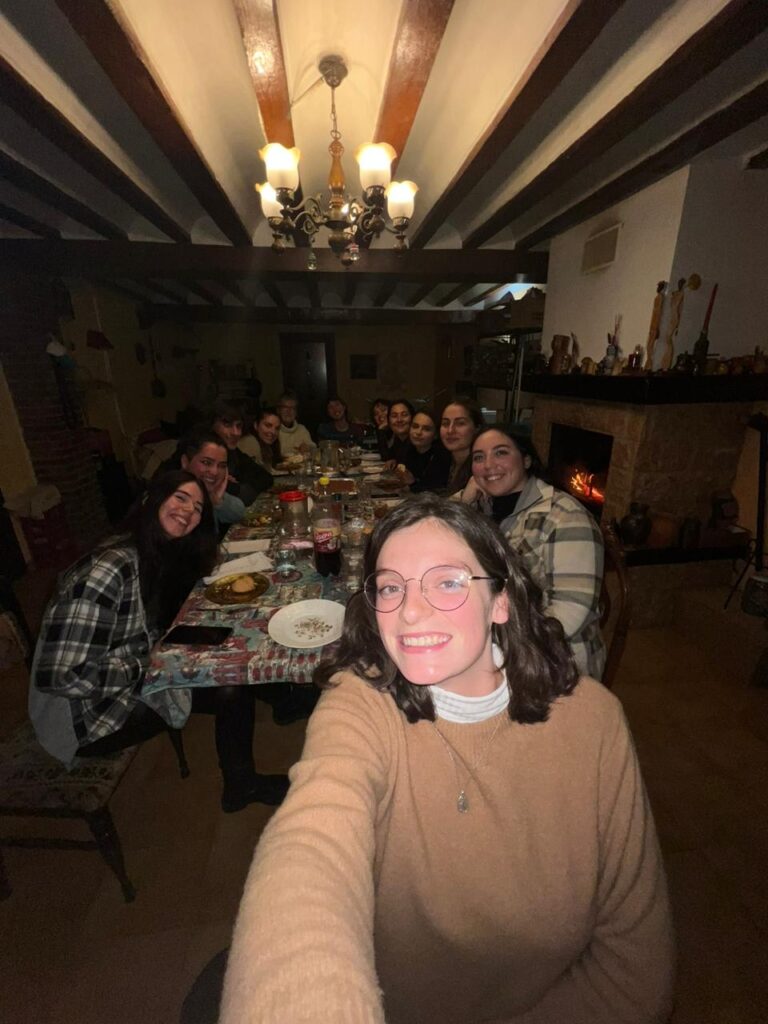
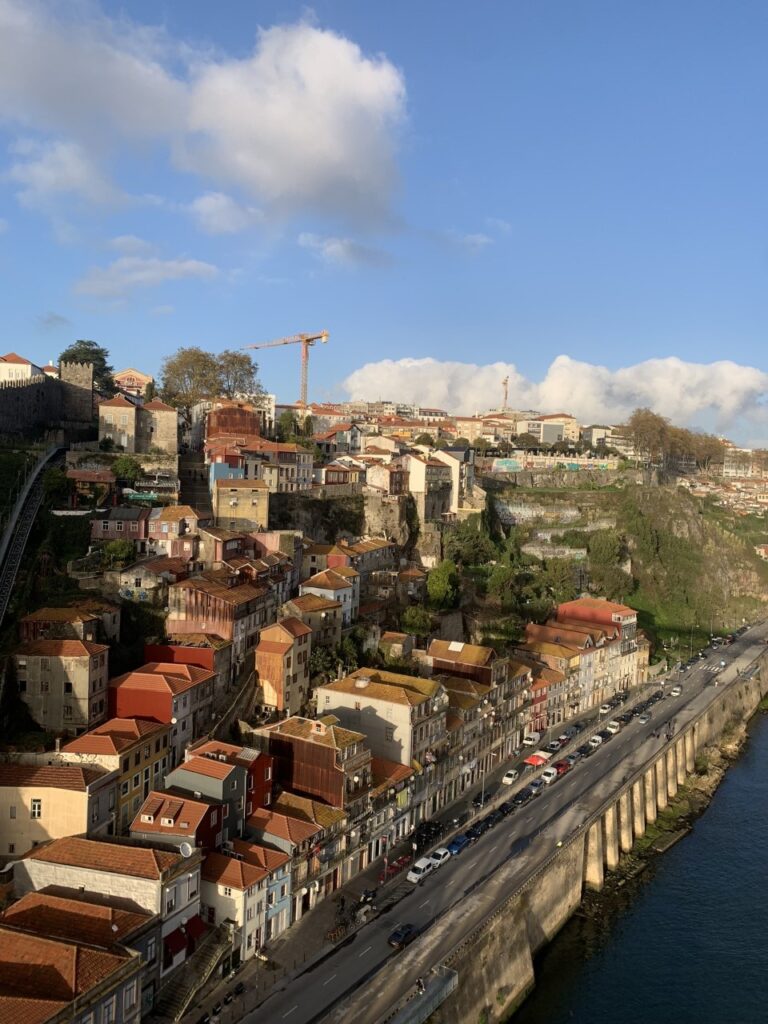
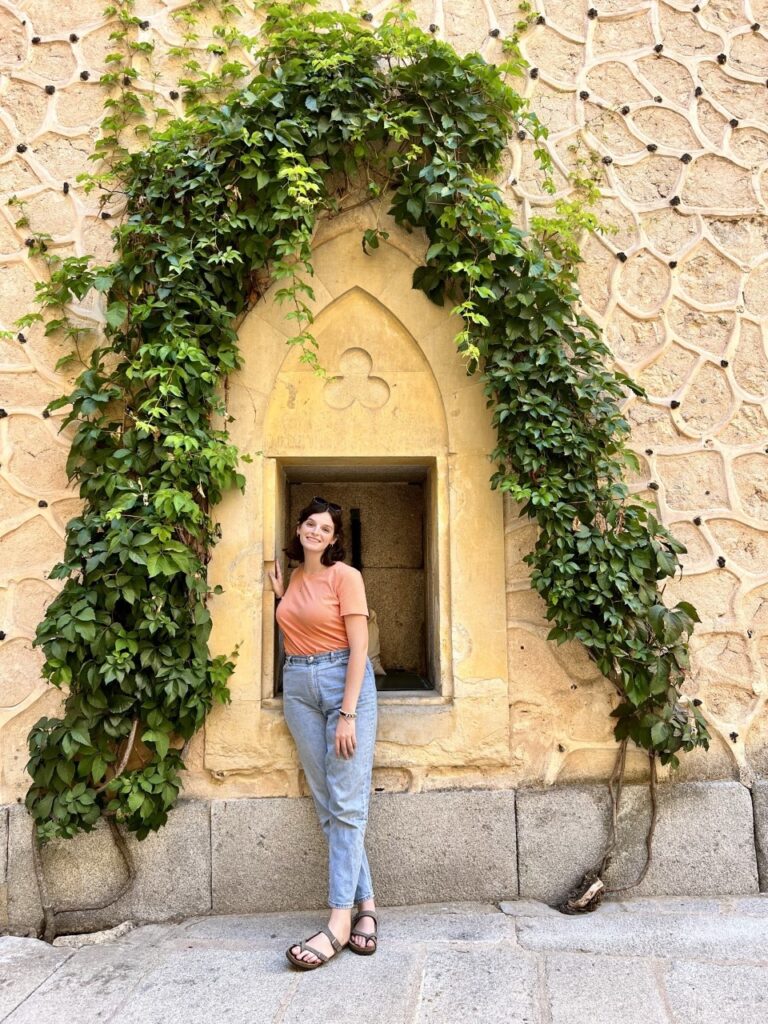
Once I arrived in Burgos, my initial thoughts were mixed. I knew no one, and my program cohort consisted of me and one other girl studying in the USA. She was from Saint Lucia, so I was technically the only other American that I knew studying there. I could also barely speak Spanish, which I soon realized would be necessary. Outside of bigger cities like Madrid and Barcelona, most Spaniards aren’t very conversational in English. I was also enamored by the architectural differences, as well as the fact that across my cobbled stone road was a colossal monastery from the 12th century. I couldn’t get that in Tennessee. While I was a mixture of anxious, lonely, and scary for the future, at least I could be wistful in a beautiful house that was older than my home country.
As time passed, September became October, strangers became friends, and my liking for cerveza and Burgos increased more than I thought would ever be imaginable. Burgos was cold, and I was forced to buy a winter coat within my first month. My host mom Marisol quickly became my favorite Burgalesa, and we would converse over the most mundane and profound topics in Spanish, switching to English only when deemed necessary. She also had two Spanish students living with her, Mikel and Ane, both of whom would become dear friends who I would get to visit in their home city later the semester. Her daughter, Maria-Elena, also lived with us, and was always eager to make a joke or practice English with me.
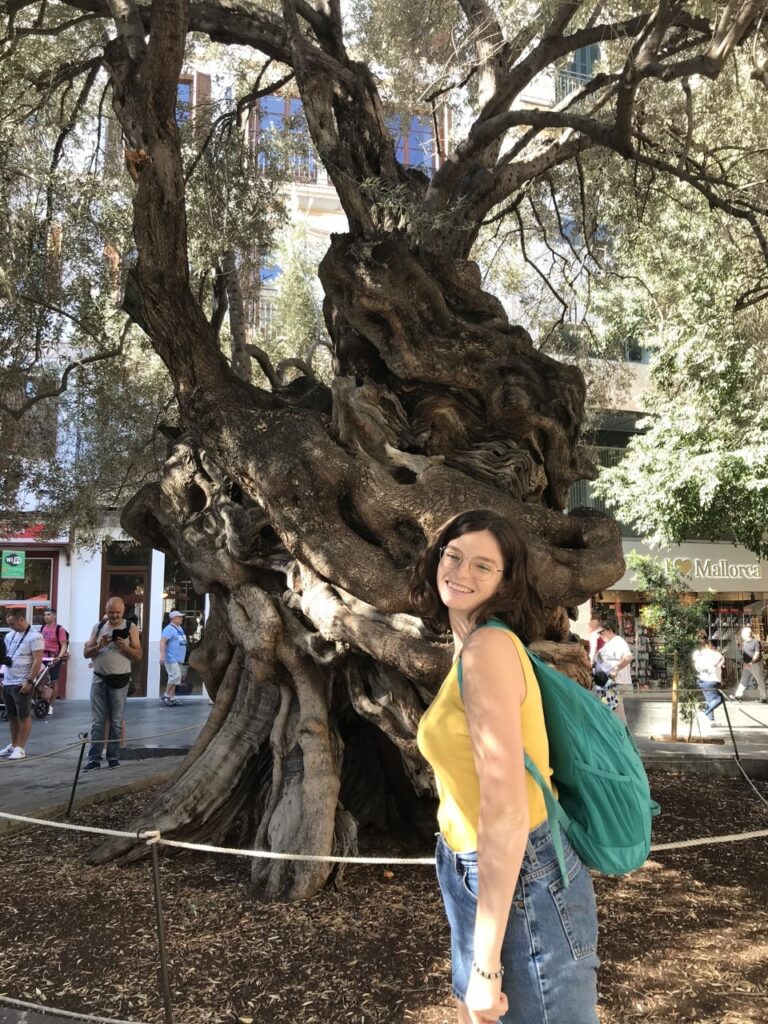
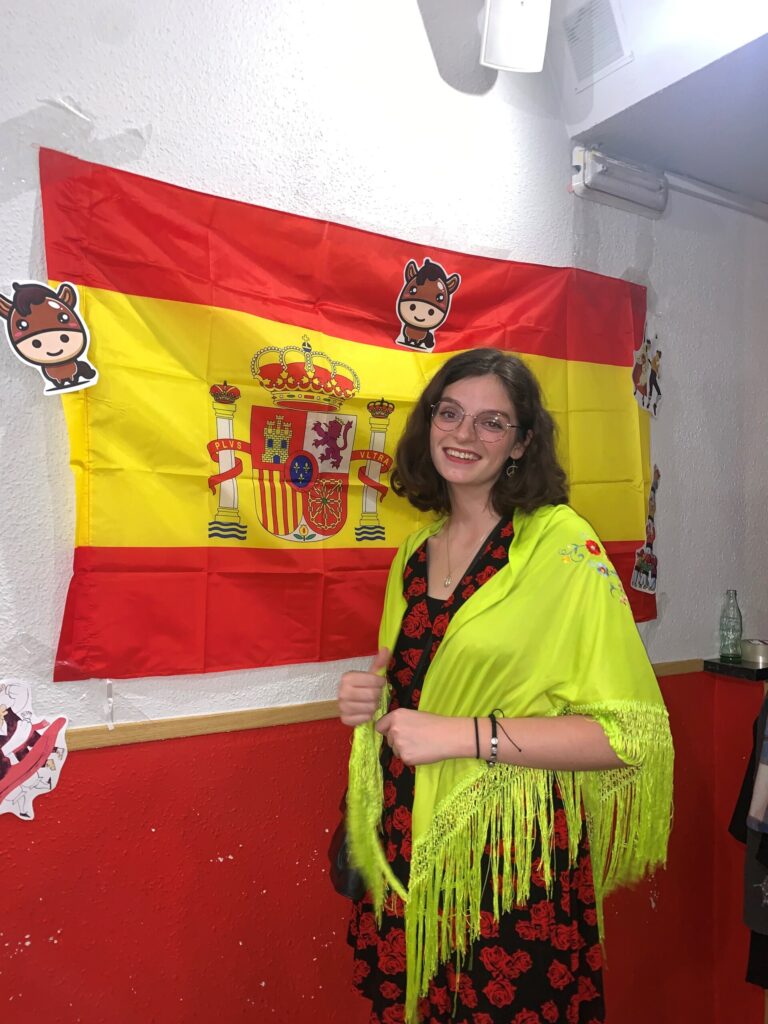
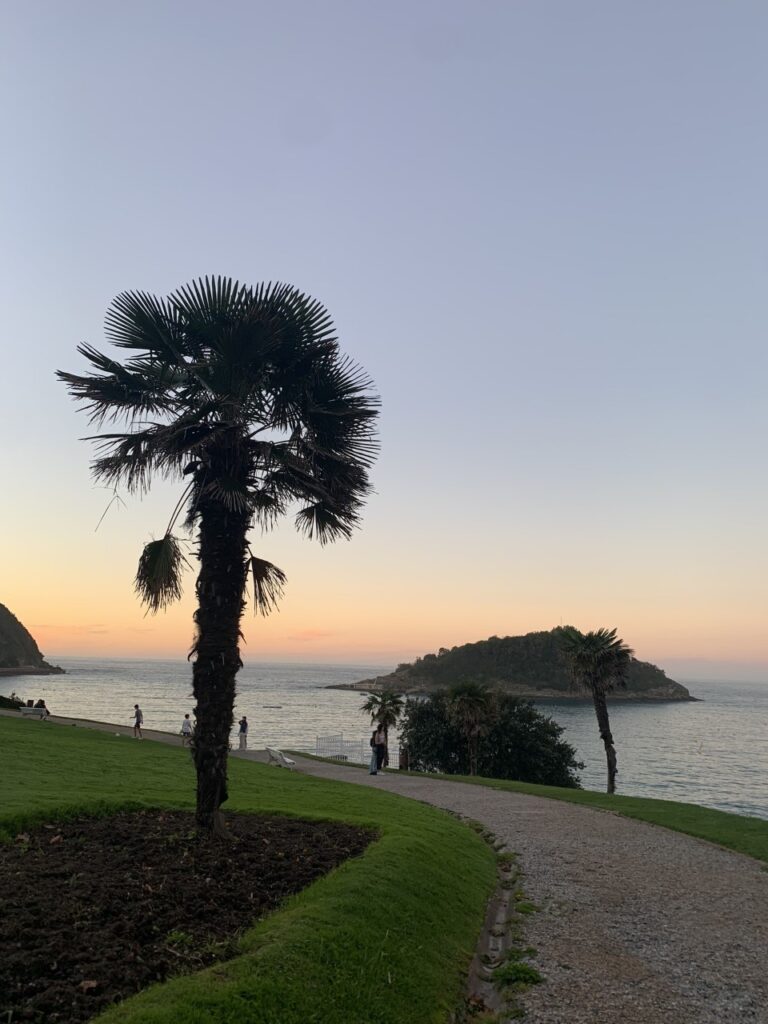
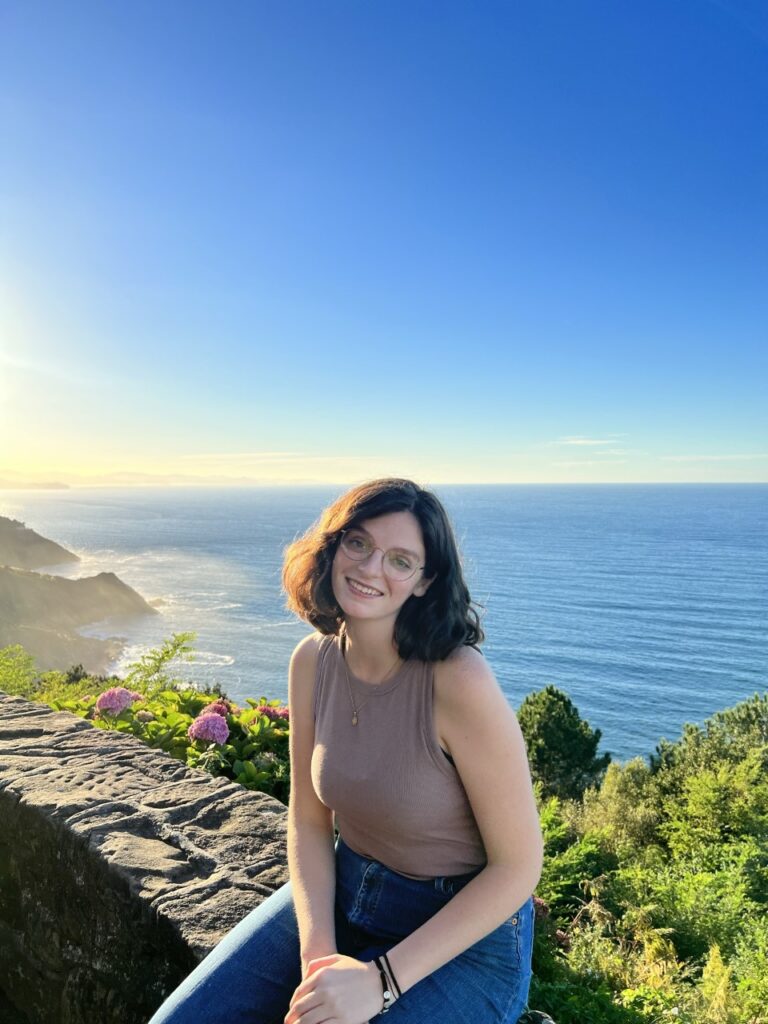

These four people would end up having a profound impact on my life during my time there. Marisol would smother me with affection while also correcting every grammatical mistake I would make, serving as the maternal figure I didn’t realize that I needed at the time. Mikel would accompany me to Mass, have theological conversations with me, and would allow me to speak in English when I was exhausted from using Spanish all day. Ane would give me advice on my grammatical phrasing, always happened to be in the kitchen with me when it was time for our 11:00 PM dinners. Maria-Elena would ask me the same “Que tal Maria” and quiz me over my days. These people made living in a foreign country with a different culture and language so much easier, and I cannot imagine how my experience would have been without them. They gave me a family, people to share my culture with, and a place to call home.
While I was in Spain, I also became well versed with the Erasmus community. Erasmus is the European Union’s equivalent of studying abroad. Essentially, if you’re part of the 27 European member states, the government will pay for you to study in another country for one semester or a year. Since I only had one other person studying from the USA with me, we were able to become involved with all of their events. I was able to go to their cultural events, day trips, but mostly, parties. I gradually became friends with people from all over the world: Mexico, Portugal, Germany, Romania, Italy, Wales, Chile, Georgia, Martinique, and China.
While the majority of students were from the EU, there were some from Asia, LATAM, And South America too. It was so wonderful to make all of these friends, to learn their cultures, and to be able to use Spanish to communicate with them. One day I was sitting in my Spanish class and began to realize that I was the only person, out of 16, that didn’t speak a 3rd language. It really puts into perspective how the US education system varies from others. I also was able to reduce some stereotypes that many had about Americans, which personally made me very happy.
While I do wish some of the people had been friendlier (Burgaleseans are known for being colder than other Spaniards due to the weather) I was able to make several Spanish friends during my time there. It was just a bit difficult because the majority of my classes catered to international students, and Erasmus was solely international students.




I was also able to travel a lot. My host family nicknamed me la viajera, or the traveler in English, since I made an effort to visit different places most weekends. I was able to visit Rome, several cities in Spain (my favorites being Palma de Mallorca and San Sebastian), Scotland (where I saw a fellow UTC classmate Jane Dodge), and Portugal. Some of these trips were alone, and others were with other international students I had befriended. This wouldn’t have been possible without affordable European transportation, many, many night buses, but mostly, the generous scholarships of the UTC Study Abroad Office.
The beautiful thing about Burgos was how everything was different for me. Having spent two months in Spain before, I didn’t anticipate many of the differences would shock me. Firstly, it was much greener than Southern Spain. The population density was also a bit different. Spain tends to have many people living in very small amounts of space, especially by American standards. That density though makes getting around so much easier. In one hour I could walk across the entire city. Everything was walkable, and it was always safe. I could walk home at 3AM listening to music and never worry about my safety. The food was incredible, and it was amazing how much bread and wine one can consume. Constantly being forced to speak a different language every day and not know if you would be understood, as well as doing many things alone, helped tremendously with my self-confidence and anxiety. I miss the pace of life the most though. Or how food is prepared and savored, not gotten to go and scarfed down so one can move onto the next thing. How attention to detail isn’t only limited to ancient buildings, but style and food too. Spain is a beautiful country, and I’m already planning my return to the irrelevant city that I love so dearly.
Mary Bennett (BS Finance) spent Fall 2022 studying abroad in Burgos, Spain through KEI.
Share this post:
Leave a Reply